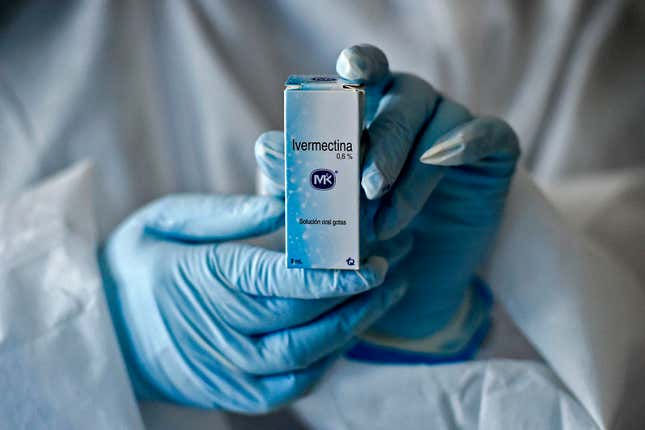
Arkansas jail detainees claim they were given ivermectin to treat COVID-19 without their knowledge and say that a doctor told them they were being treated with vitamins. An Arkansas doctor is currently under investigation for administering the drug, though the doctor claims the inmates took the drug willingly, according to CBS News.
Edrick Floreal-Wooten said over a video call from the Washington County jail that he and other inmates were given pills to treat COVID-19 after he tested positive in August. Floreal-Wooten said he and others asked repeatedly what the pills were for.
“They said they were vitamins, steroids and antibiotics,” Floreal-Wooten told CBS News.
“We were running fevers, throwing up, diarrhea ... and so we figured that they were here to help us. ... We never knew that they were running experiments on us, giving us ivermectin. We never knew that.”
The doctor in question is Dr. Rob Karas, the jail’s physician, who is currently being investigated by Arkansas’s state medical board.
Ivermectin, which federal health officials have urged people not to use because the drug is not intended for viruses like COVID-19, can be “dangerous and can cause serious harm,” according to the FDA. If a person overdoses from the drug, symptoms may include diarrhea, dizziness and nausea, just to name a few.
Here is more from CBS News:
Ivermectin is only approved by the Food and Drug Administration for human use to treat parasites, and in some cases, head lice and rosacea. It is not an anti-viral, and the FDA has repeatedly warned against using it to treat or prevent COVID-19. But misinformation promoting the drug on social media has fueled its use. Large doses of the drug can be “dangerous and can cause serious harm,” the agency has said.
Overdose symptoms may include diarrhea, dizziness and nausea, among other things.
Floreal-Wooten said he and the other inmates were not aware that jail nurses were giving them ivermectin until about five days after first receiving the pills. He said inmates can’t see what the medications are because pills are pulled out of a drawer that has dozens of bottles.
The only reason they found out, he said, is because of news reports that Dr. Rob Karas, the jail’s physician, was prescribing the drug to detainees and others.
“And from that point forward ... they finally gave us the consent if we would like to take the pill or not,” he said, adding that roughly 20 other inmates then turned down the pills.
“It was not consensual. They used us as an experiment, like we’re livestock,” Floreal-Wooten told CBS News. “Just because we wear stripes and we make a few mistakes in life, doesn’t make us less of a human. We got families, we got loved ones out there that love us.”
Other inmates told the Associated Press about being given ivermectin “They were pretty much testing us in here is all they were doing, seeing if it would work,” he said. The ACLU of Arkansas is seeking documents from the sheriff’s office and the doctor in question as it relates to jail detainees and COVID-19 care.
“No one — including incarcerated individuals — should be subject to medical experimentation,” ACLU of Arkansas Executive Director Holly Dickson said in a statement. “The detention center’s failure to use safe and appropriate treatments for COVID-19 ... illustrates the larger systemic problem of mistreatment of detainees and over incarceration in Arkansas that has persisted — even in the midst of a pandemic.”
Karas told a CBS affiliate that jail detainees were “not forced” to take ivermectin and that many refused the drug.
Floreal-Wooten says since taking the pills, he says he has had diarrhea and upper abdominal pain. He doesn’t want to tell the medical staff because he doesn’t trust them, preferring to wait to get medical attention when he is released, which will be in about a month.
“I’m scared,” he said. “If you were so willing to put something in my pills and give me a pill without my acknowledgement, you could do the same thing and be deceptive and put it in my juice, my food. ... I can’t trust any of the medical staff. I can’t trust any of the guards.”



